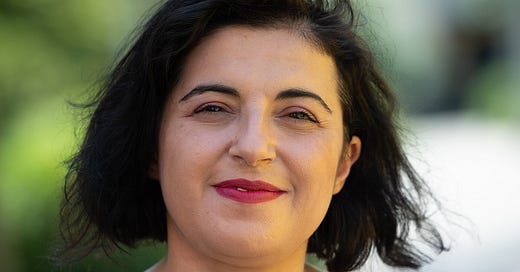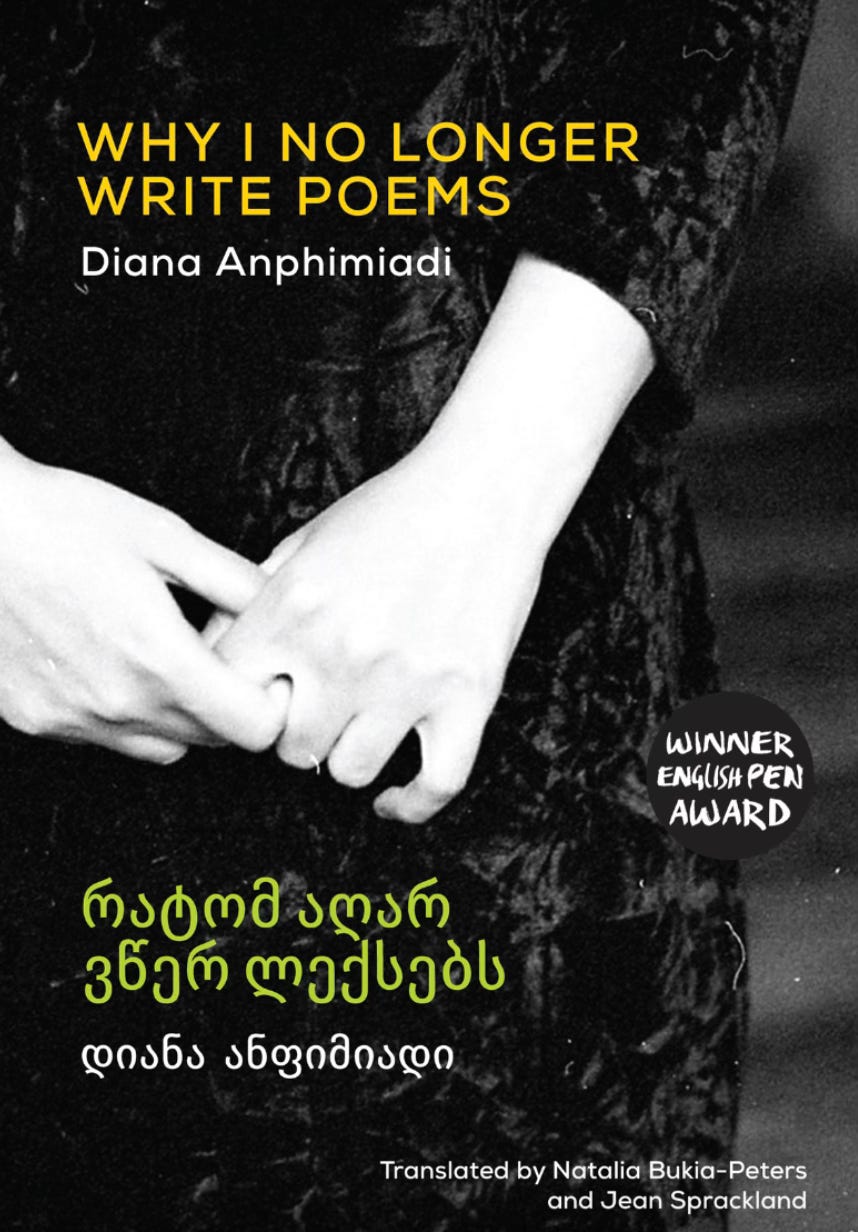Why I No Longer Write Poems by Diana Anphimiadi - book review
Playful poetry … versatile verse … gorgeously Georgian …
Why I No Longer Write Poems by Diana Anphimiadi (2020) is a collection of 49 or so poems, cutting across classical allusions and surreal imagery in an eclectic mix of styles, predominantly merging classical Greek and Georgian myths, legends, and histories.
I spoke about this collection in episode 3 of the Triple Treat Book Chat podcast with award-winning Georgian poet Tamar Zhgenti in June this year with two other Georgian poetry collections – but I read Diana’s anthology again this week and it really does deserve its own book review.
Diana Anphimiadi (1982-), born in the country of Georgia, is a poet, writer, linguist, and pedagogue. She has authored five poetry collections, two prose books, and one children’s book. She has received numerous awards for her poetry and for children’s and youth literature. In 2022, The Guardian newspaper named the bilingual edition of Why I No Longer Write Poems as one of ‘the best recent poetry collections’ and gave praise for its ‘gorgeous, fabulizing verse.’ Georgian translator Natalia Bukia-Peters and British poet Jean Sprackland translated this bilingual edition from the Georgian language into English.
Diana also researches Georgian gastronomy, culinary and ethnic culture and has professional experience with inclusive education and autism language. I mention this because Diana’s poems in this collection draw upon her previous experiences and her multitude of skills.
The first poem in the collection is Sleeping Beauty with a reference to taste: ‘Sweep your finger in this dust, like a bowl of honey, screw up your eyes and taste it.’ The poem Poet in the Shower is delightful too. Dance Lessons (3/4 Time) tells readers to ‘hold your back straight, lift your spine.’
Everyday events – particularly cooking – are offered in poetic form from recipes to dance lessons. She evokes the senses to their fullest – especially sight and taste: ‘Milk spills into the sky like oil into the sea.’ The mouth and tongue are not only used for taste, but they also form words and speech. Diana writes in one of her poems, ‘poems need language.’
I like her poem The Trajectory of Short-Sightedness which combines the touch of Braille dots, for the visually impaired, with the movement of dancing when nearly blind: ‘As if I caressed you blindfold, sent Braille running over your skin like ants.’ She has another poem called ‘Braille.’ It includes the evocative lines:
When dawn breaks,
the sky is smeared with cherry mousse.
First, black – not a single sound –
we sleep, or we die.
The floor creaks a little
as black becomes grey,
then blue – a cool wave on hot feet.
Diana Anphimiadi’s collection is interesting, layering colour on colour, sight on sound, taste in the air, and touch on the tongue. It is interesting and though-provoking. It is brilliant.
Photograph of Diana Anphimiadi by Harald Krichel.
Can’t see the whole article? Want to view the original article? Want to view more articles? Go to Martina’s Substack: The Stories in You and Me






